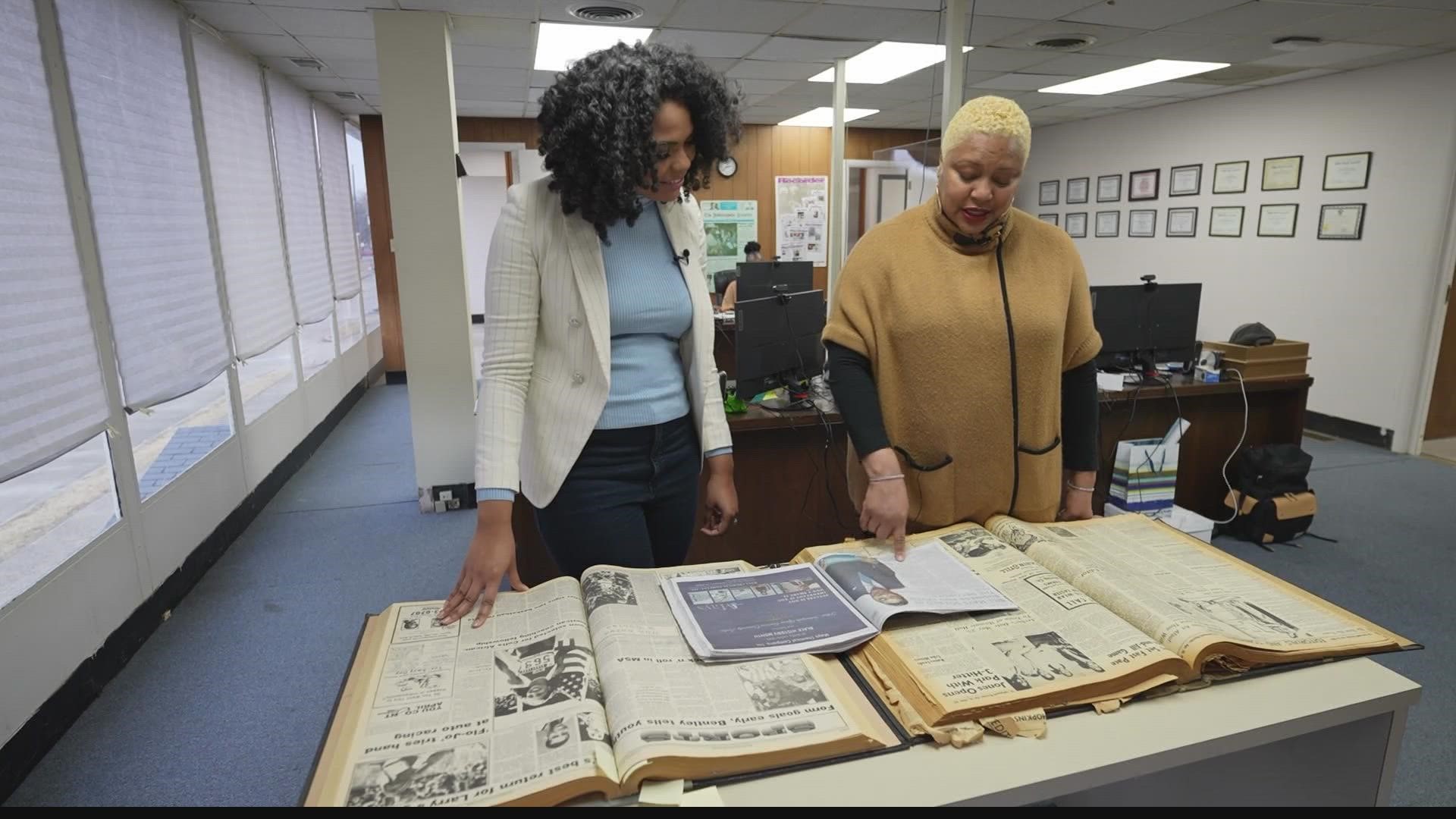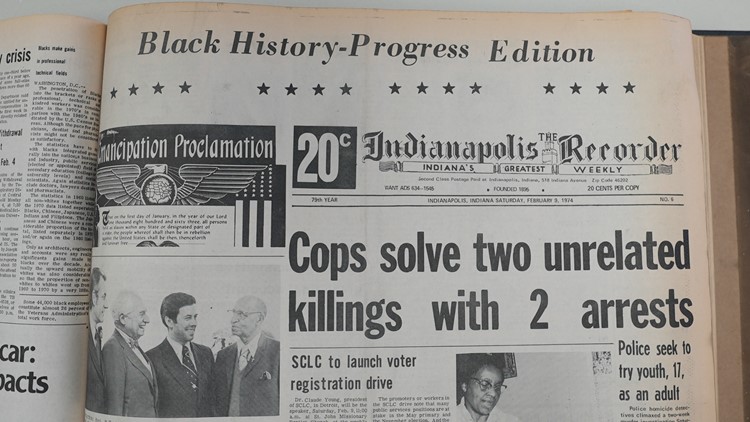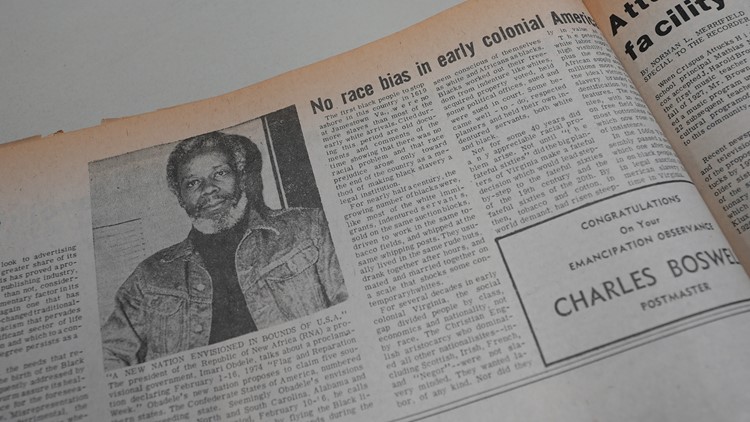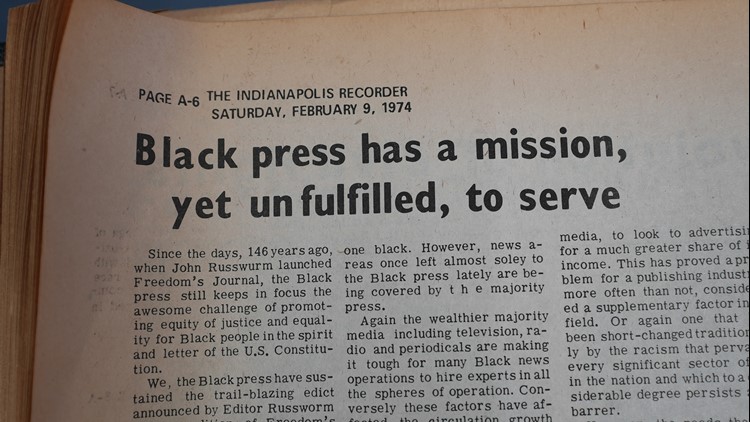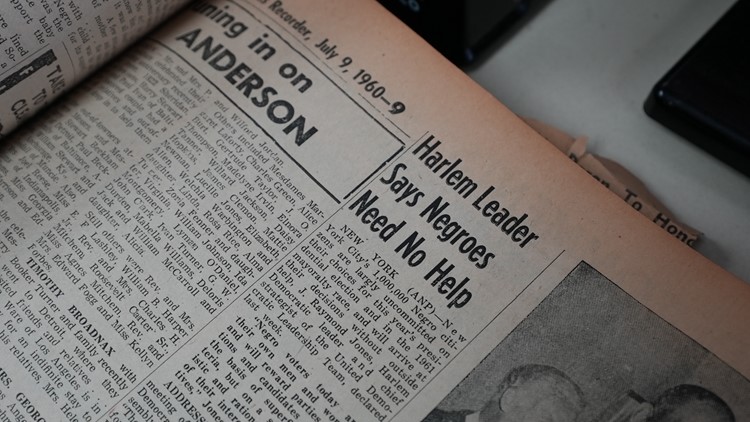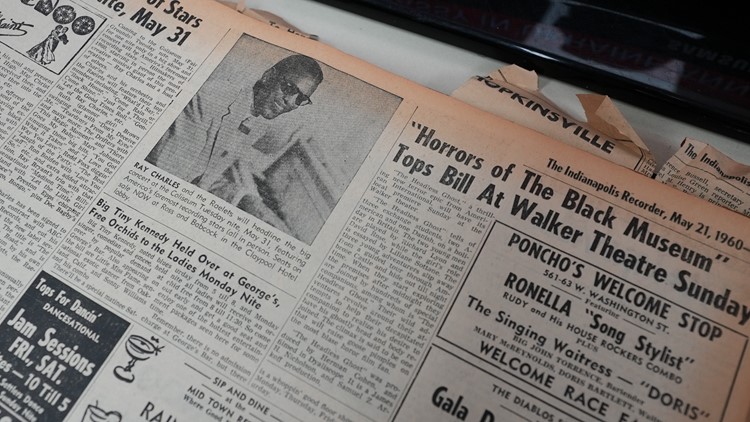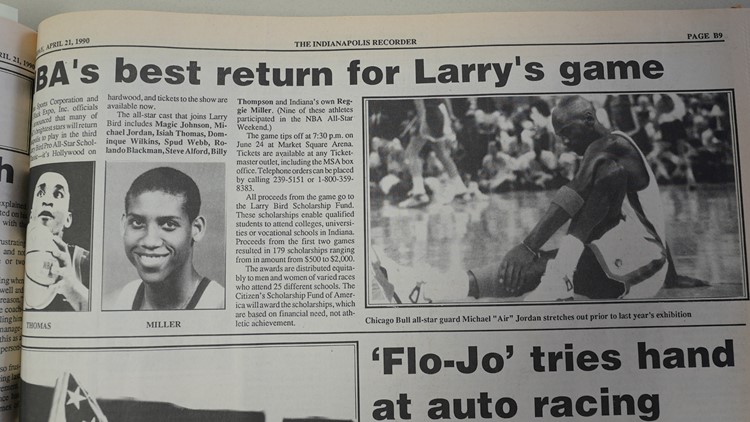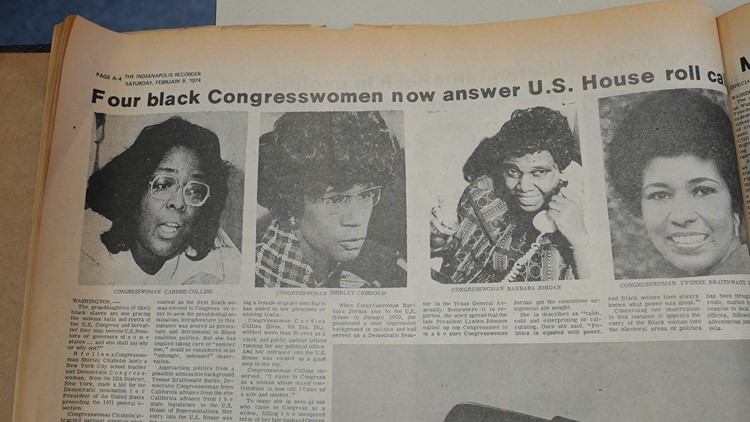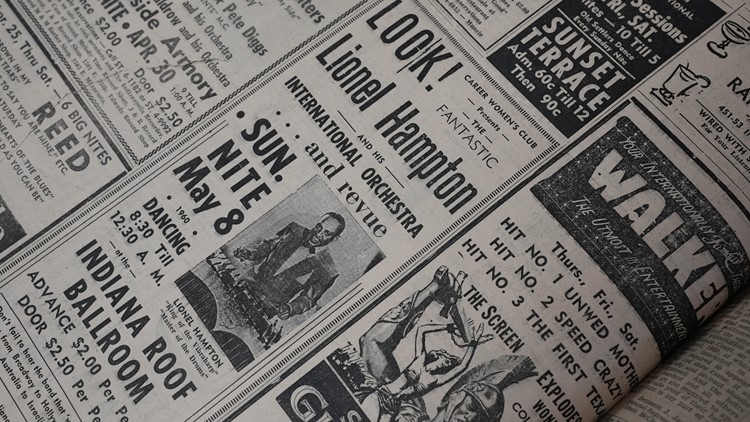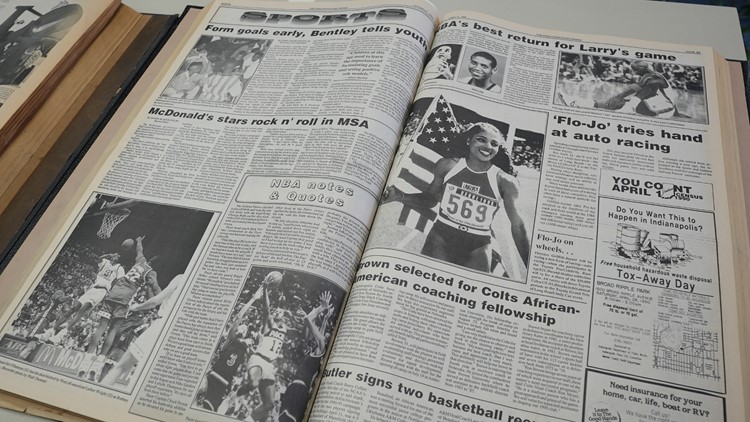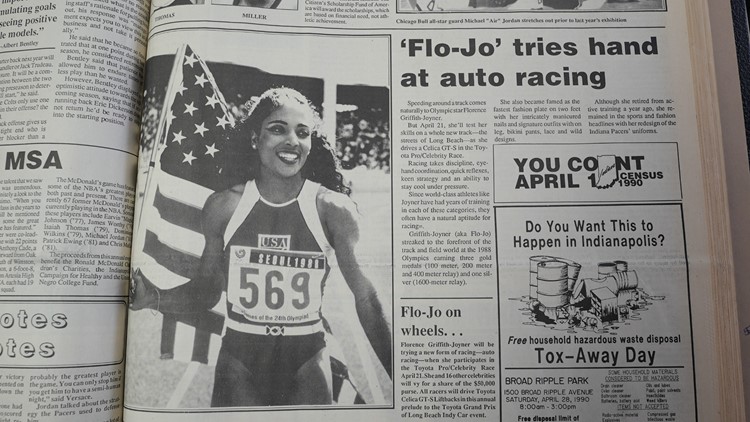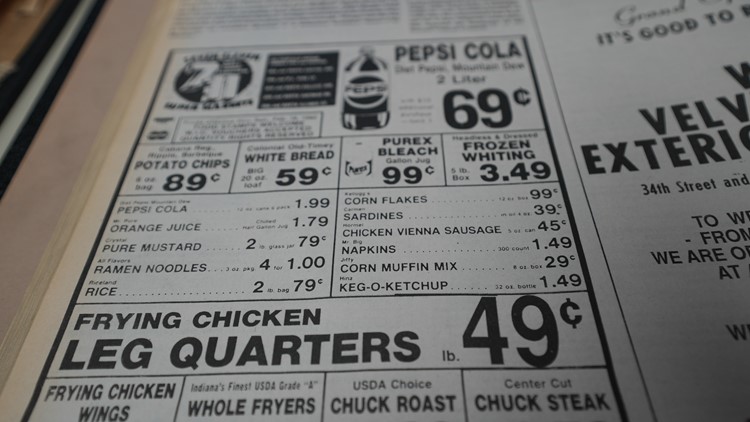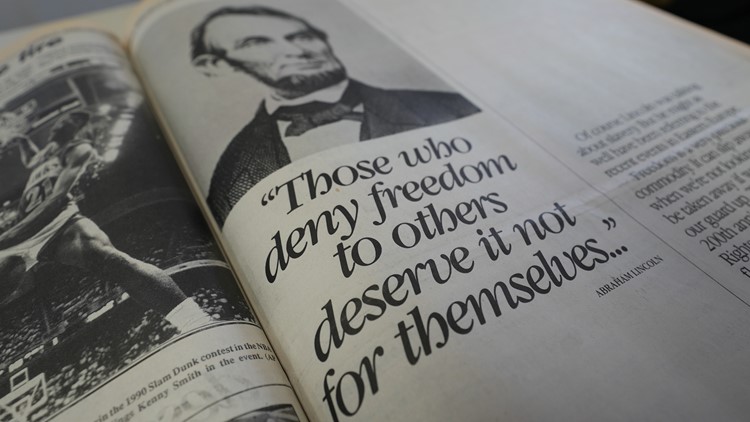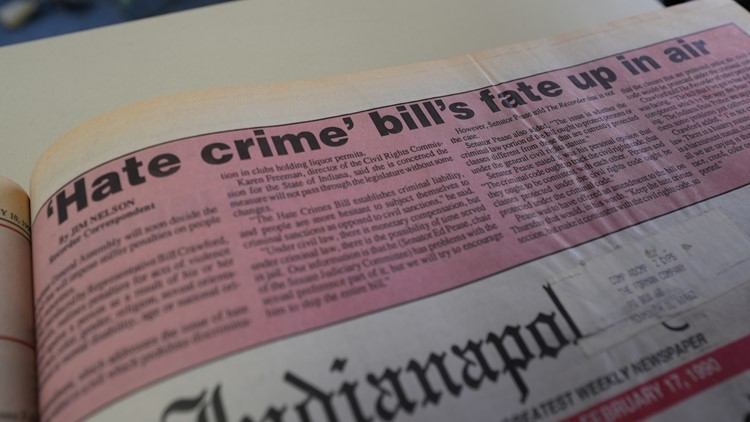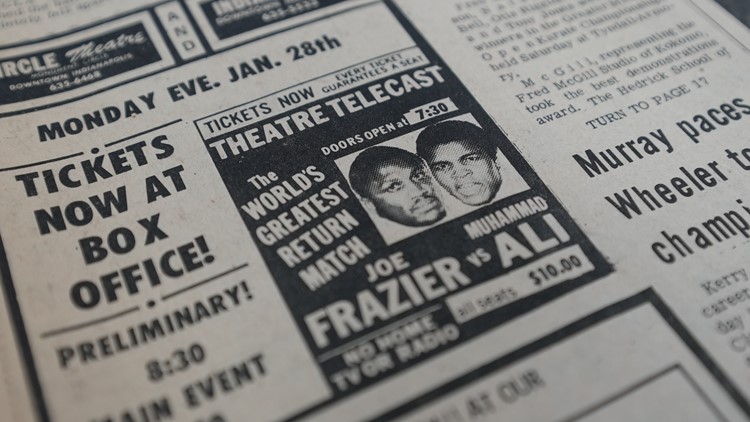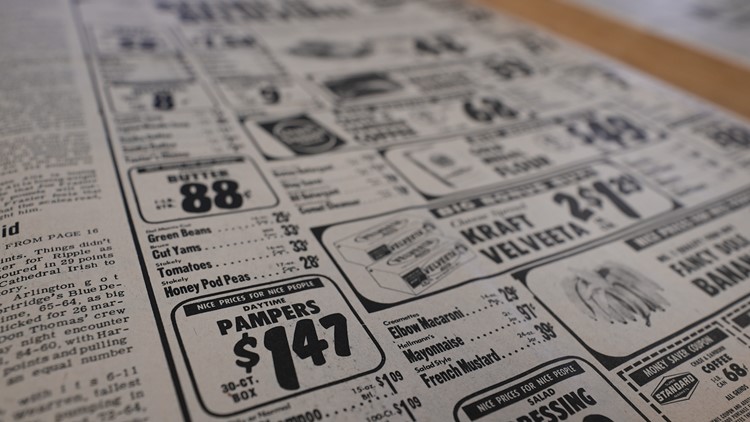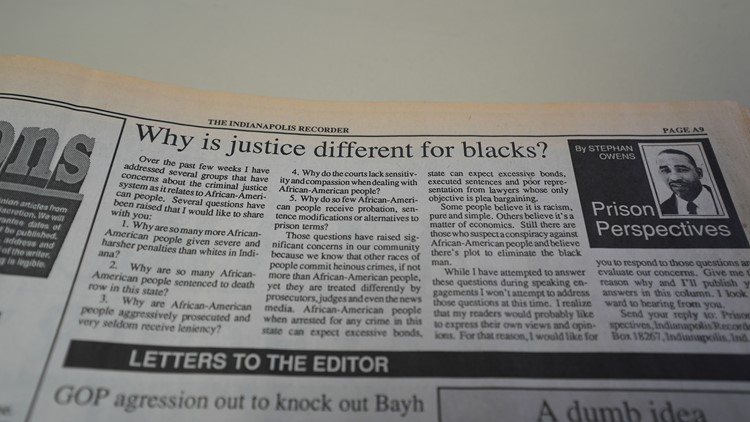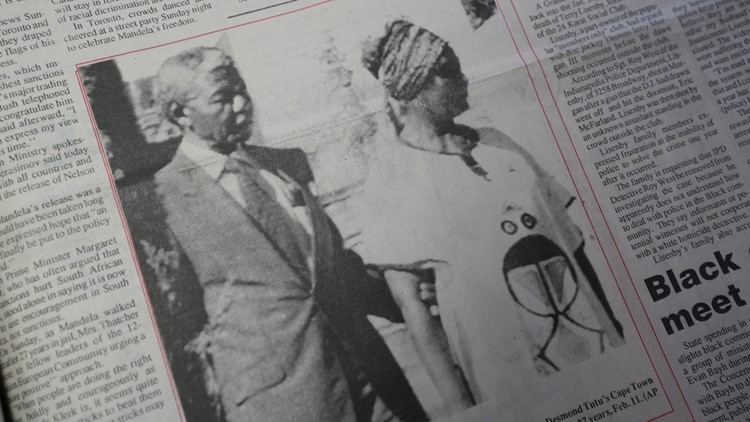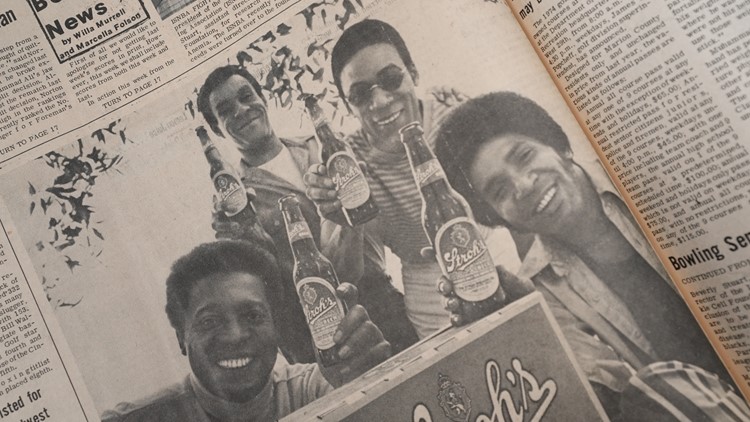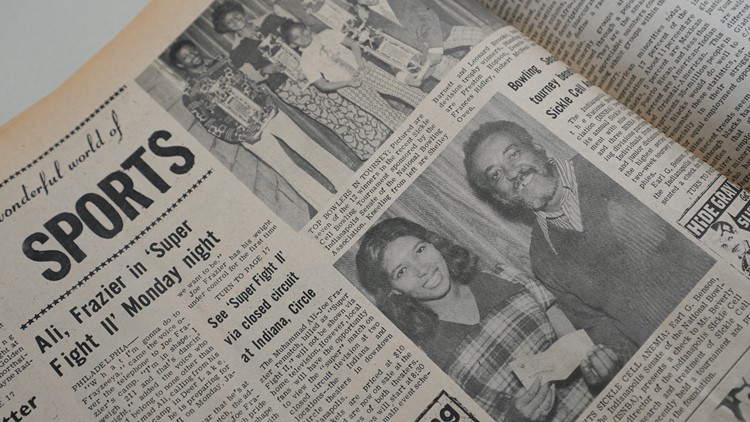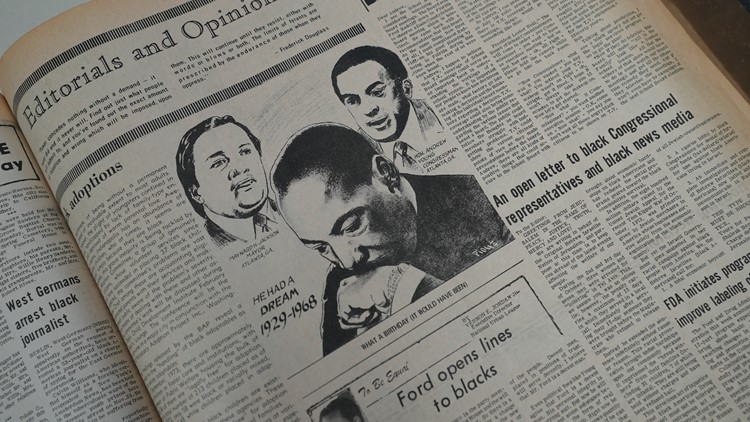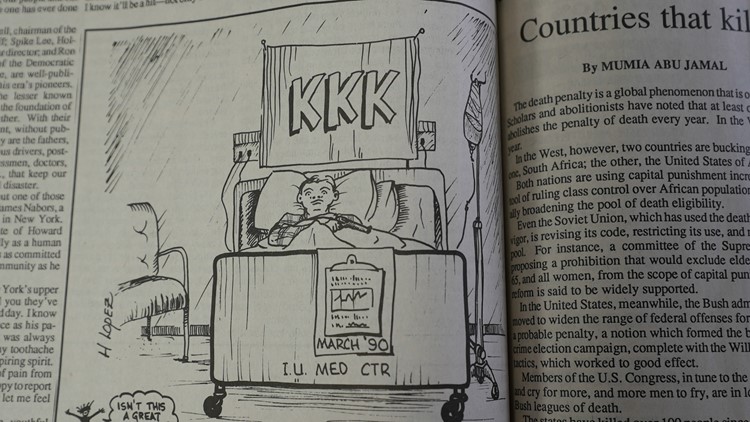INDIANAPOLIS — Over the past 127 years, the Indianapolis Recorder has grown from a humble two-page church bulletin to a newspaper and now a proud voice in the digital world. The award-winning news organization is the country’s fourth-oldest African American newspaper and continues a rich legacy for people of color throughout Indiana and the country.
It’s something editor Oseye Boyd doesn’t take lightly.
“First of all, you don't get a lot of businesses 127 years old to begin with, right? Then you don't get a lot of black-owned businesses. So that right there is, I just think you should just be so proud that we've been in existence and we owe that to the community,” Boyd said.
The Recorder has informed, connected and told the truth for a community that’s been historically overlooked. When many mainstream newspapers didn’t extend diverse coverage with an inclusive lens to the Black community, the Recorder worked to fill that void.
“Indiana was a Klan stronghold,” Boyd said. “There was a need because we had so many things that we were dealing with at that time. And you want to spread vital, real information. You want to spread the truth. It’s vital for the truth to be spread about black people and actually represent us as human beings. Our stories weren’t told accurately – and so that’s why we exist. We always say we’re a voice for the voiceless.”

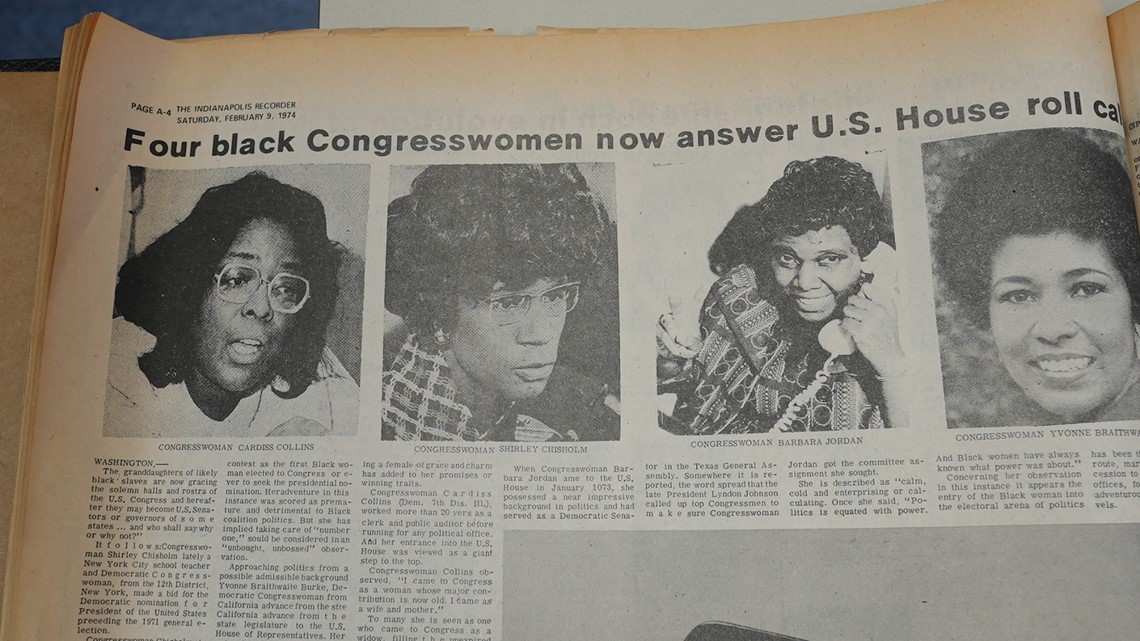
Overcoming death threats and intimidation from the Ku Klux Klan, to hard-hitting financial times, the mission of the Recorder has stayed the same.
“You know, we write stories that matter that I want our stories to engage, empower, educate. You know, I want our stories to resonate. And hopefully, if you're angry about, you know, the potholes in the street, you call the Mayor's action council. You know, we want people to actually do things because they read something,” Boyd said.
Since its inception, the Recorder has been present for pivotal moments in our country’s history.
“Reconstruction. You have Emmett Till, civil rights movement, President Obama, you know, even since I've been here...2020 social protest, a 2020 social justice, I call that the second Civil Rights movement we are in the second Civil Rights movement. It definitely feels similar to, I wasn't alive then, but it feels similar to what I've read about and what I see, so that's why I called the second Civil Rights,” Boyd said. “But we are in the midst of that, we have taken that charge to, to hearken back to what our ancestors did to what those who came before us did and fight the fight. You know, 'that good trouble' as John Lewis said.”

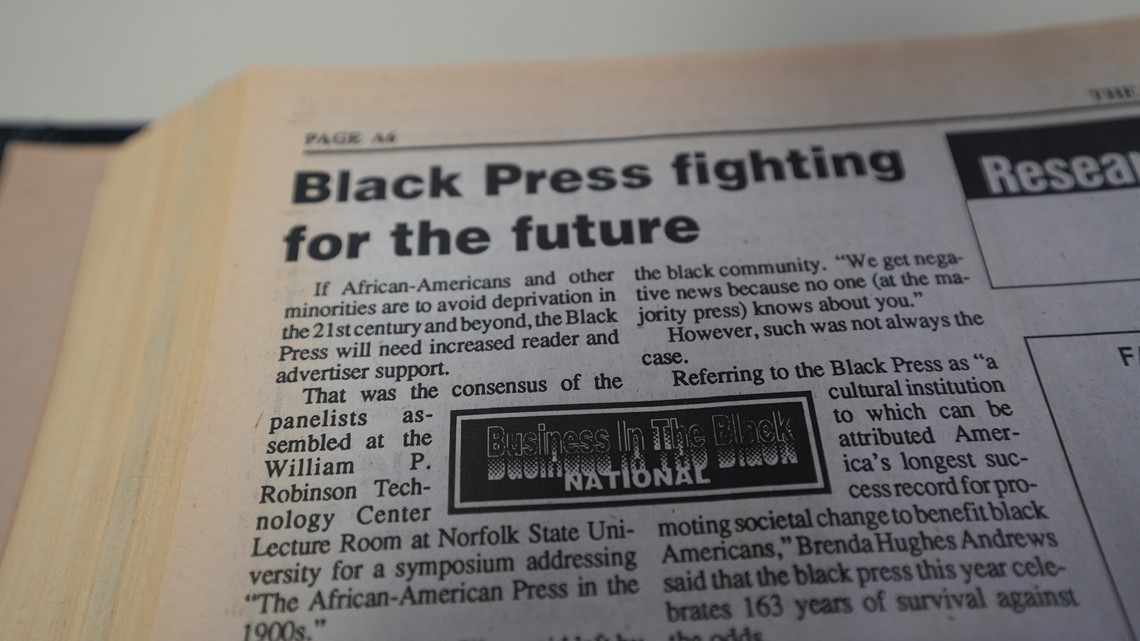
Five owners have worked to keep this historic media organization alive. In 1990, businessman and publisher Bill Mays and his family stepped in to financially reinvigorate and help secure the paper’s legacy.
Boyd says Mays, who has since passed away, helped save the paper. Today, his family continues that legacy.
“He wanted to see it live to 100. So, I think Mr. Mays will be really proud that we are actually 27 years beyond that, so we're 127," Boyd said. "So, I think he'll be really proud of it. We have met and exceeded his goal.”
This bold, Black press has stood the test of time and now focuses on incorporating all different backgrounds in its writing, from guest writers to op-ed pieces.
“We're not monolithic. You know, we are not just one voice. I don't always agree with someone who's Black. Just because you're Black doesn't mean I'm going to agree with you. We don't all think the same, contrary to some, you know, some who believe that we do," Boyd said. “You know, we don't all look the same, talk the same, dress the same, think the same. So why should we all have the paper just be only one voice that's not fair to our community? That's not full representation and the idea is to represent us fully. So then why should...why would we, you know, why would we – if we're asking for representation – why would we not do the same?"

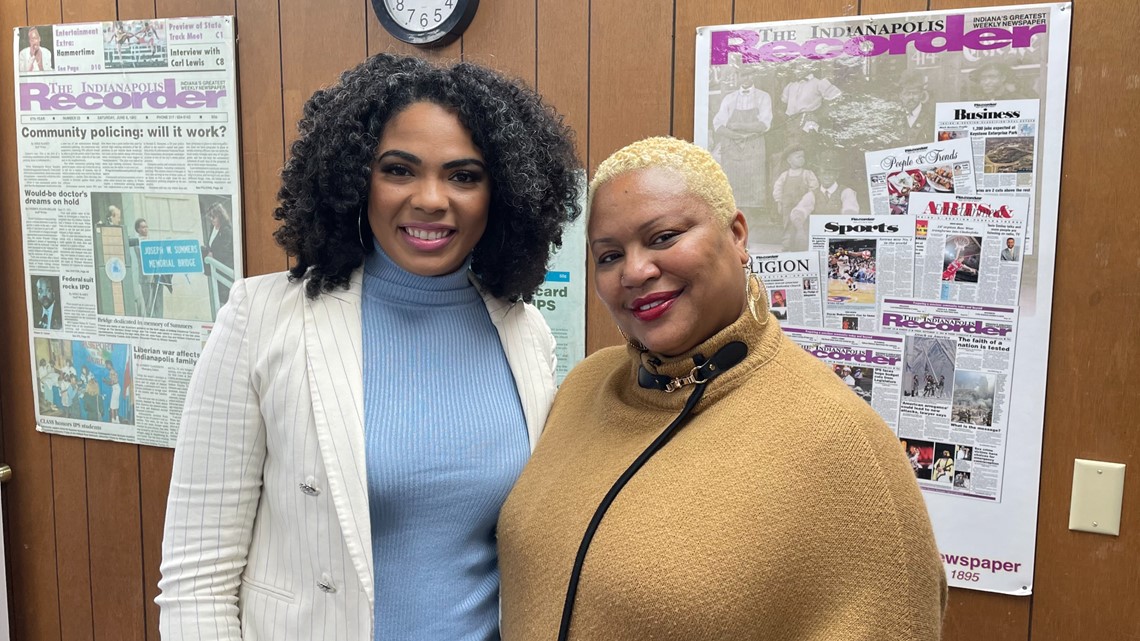
I also asked Boyd about why there is still a need for a Black newspaper.
“For so many reasons. Unfortunately, our community still isn’t covered the way it needs to be covered. There is still a lack of diversity in most newspapers – lack of diversity in thought, in ethnicity, race, gender, some of the decision-makers are still white male. A lot of editors are still white men," Boyd said. "Oftentimes, we are excluded and when you look back historically at how mainstream papers treated our community, there’s a lack of trust. That lack of trust still exists. And so we are here because they trust us – the community trusts us with their stories.”
Much of the archive for Indianapolis Recorder has been digitized through a partnership with IUPUI. But I got the rare opportunity to thumb through some actual newspapers from 50 and 60 years ago, which proved to be a true walk through time.


From wedding announcements to grocery store ads, the Recorder has truly been there for it all. It’s hard to think that today’s paper will one day be in the archives.
As Boyd told me, “We are a part of history. I have to remind myself all the time. This is today. This is today. One day, hopefully, this paper will be just as yellow as this paper. It's been here before me. I want to see it here after me. You know, it's about the Recorder, and it's about this legacy and this voice for the voice in this truth.”

